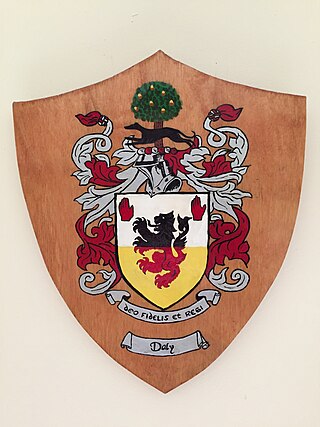
Irish literature comprises writings in the Irish, Latin, English and Scots languages on the island of Ireland. The earliest recorded Irish writing dates from the 7th century and was produced by monks writing in both Latin and Early Irish, including religious texts, poetry and mythological tales. There is a large surviving body of Irish mythological writing, including tales such as The Táin and Mad King Sweeny.

James Stephens was an Irish novelist and poet.
The Irish Literary Revival was a flowering of Irish literary talent in the late 19th and early 20th century. It includes works of poetry, music, art, and literature.
The Penguin poetry anthologies, published by Penguin Books, have at times played the role of a "third force" in British poetry, less literary than those from Faber and Faber, and less academic than those from Oxford University Press..
The Oxford University Press published a long series of poetry anthologies, dealing in particular with British poetry but not restricted to it, after the success of the Oxford Book of English Verse (1900). The Oxford poetry anthologies are traditionally seen as 'establishment' in attitude, and routinely therefore are subjects of discussion and contention. They have been edited both by well-known poets and by distinguished academics. In the limited perspective of canon-formation, they have mostly been retrospective and well-researched, rather than breaking fresh ground.
Poems of Today was a series of anthologies of poetry, almost all Anglo-Irish, produced by the English Association.
Events from the year 1958 in Ireland.
Richard Kerr Murphy was an Anglo-Irish poet.
Padraic Fallon was an Irish poet and playwright.

The Ó Dálaigh were a learned Irish bardic family who first came to prominence early in the 12th century, when Cú Connacht Ó Dálaigh was described as "The first Ollamh of poetry in all Ireland".
Nationality words link to articles with information on the nation's poetry or literature.
The Oxford Book of Irish Verse; XVIIth century - XXth century was a poetry anthology edited by Donagh MacDonagh and Lennox Robinson. It was published "at the Clarendon Press, Oxford" in 1958.
The Great Book of Ireland, a gallery and anthology of modern Irish art and poetry, was a project which began in 1989. The book was published in 1991 and in January 2013 it was acquired by University College Cork for $1 million.
Aonghus Ruadh Ó Dálaigh was an Irish poet.

That part of the United Kingdom called Northern Ireland was created in 1922, with the partition of the island of Ireland. The majority of the population of Northern Ireland wanted to remain within the United Kingdom. Most of these were the Protestant descendants of colonists from Great Britain.
Richard Weber was an Irish poet, born 2 September 1932 in Dublin and dying 15 April 2020.




